“Islamic philosophers participated with European Christian philosophers and Spanish Jewish philosophers in the discussions about religion and science that took place during the Middle Ages,” Reiman, who teaches at American University, told the Mehr News Agency.
Following is the text of the interview:
Q: Ethics is divided into meta ethics, normative ethics, descriptive ethics, and applied ethics. So in interactions between ethics and human life, which ethics are more important? Do you think there is a deep relation between meta ethics and human life?
A: Meta ethics is normally the study of the logic of moral statements. It asks questions like: are moral statements true or false?, or are they commands?, or do they express emotional reactions to events?, etc. If by a deep relation to humans' lives you mean do the findings of meta ethics normally influence people's moral deliberations, then I think the answer is no. Nonetheless, it is only by studying how real people use moral statements that a meta ethicist can address the question of the logic of moral statements, so, in that sense, meta ethics does have a deep relation to humans' lives.
Q: What is the position of religion in our time?
A: Religion doesn't look like it's going to disappear any time soon. If anything, there seems to be renewed interest in religion. At our university, for example, which is quite secular, our courses on religion fill up very quickly. Our students are anxious to learn about all world religions. We have been looking for some time for someone who can teach about Islam and about Islamic philosophy.
As for religious values, I'm not sure what you mean. If you mean The Ten Commandments, justice, truthfulness, peace, the Golden Rule, and so on, those are moral values. And people can be moral with or without religion.
Q: What are the main differences between the western and Islamic philosophies?
A: I don't know enough about Islamic philosophy to answer this question. I know that Islamic philosophers participated with European Christian philosophers and Spanish Jewish philosophers in the discussions about religion and science that took place during the Middle Ages. And of course, western philosophers are very much indebted to the Islamic world for preserving the texts of the ancient Greek philosophers, such as Aristotle.
Q: Recently, Stephen Hawking, a physicist, told Google's Zeitgeist conference that philosophers have not kept up with science and their art is dead. What is your opinion about this statement?
A: I think that what Hawkings says is false.
Many philosophers are quite current in their understanding of modern science. And most of the questions that Hawkings says are now to be answered by science, are not scientific questions but philosophical ones. Science can tell us where we come from, but it can't answer the question "why are we here?" If scientists try to answer this question, they will be doing philosophy rather than science. Thus they will be acting like untrained amateurs rather than like experts. Also, like many scientists, Hawkings fails to see that for anyone to answer a question like "why are we here?" it is first necessary to get clear on what the question asks, and what possibly could answer it. And this requires philosophical--not scientific--skills.
Q: Humanities lacks some advantages of natural sciences in our era, so why have you chosen humanities? What are your reasons for studying your discipline?
A: I think that the humanities have methods that are appropriate to their subjects. And, while natural science is extremely important, the questions about the nature of culture as well as the value issues considered in the humanities are at least as interesting and important as the questions considered by natural science.
I chose my own discipline because I found philosophy simply the most exciting and illuminating form of questioning that I encountered in my university studies. I think that's because philosophy always strives to question from the largest possible perspective (the nature of reality, of being, of knowledge, of goodness, etc.). I find philosophy just as exciting today (50 years after my first course in philosophy) as I did when I first studied it. I wake up happy each morning thinking that today I will teach or read or write or think about philosophy. I urge my students to find a field of endeavor of which they will be able to say that in 50 years.
Jeffrey Reiman is the William Fraser McDowell professor of philosophy at American University in Washington, D.C. Reiman is the author of In Defense of Political Philosophy, Justice and Modern Moral Philosophy, Critical Moral Liberalism: Theory and Practice.
JH/HK
END
MNA



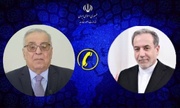



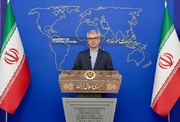
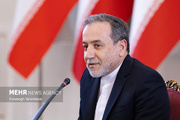


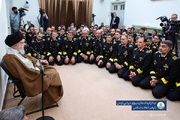


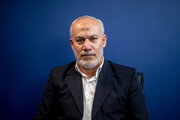





Your Comment